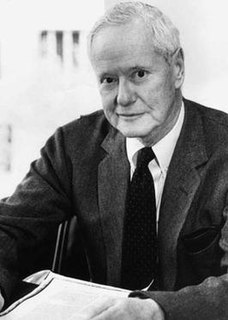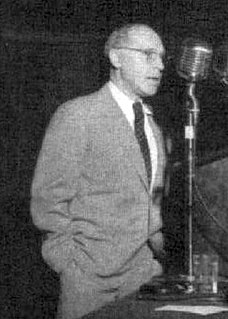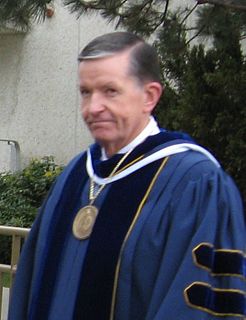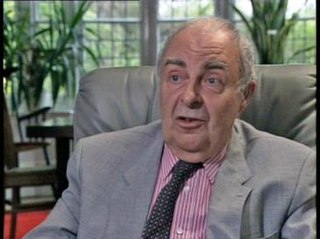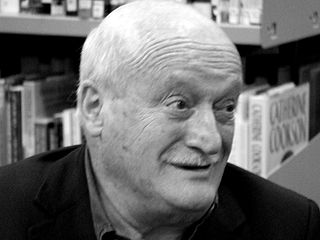Цитата Роберта К. Мертона
Только когда он опубликовал свои идеи и открытия, ученый внес свой вклад, и только когда он, таким образом, сделал их частью общественного достояния науки, он может действительно претендовать на них как на свои собственные. Ибо его притязания основаны только на признании коллег в социальной системе науки посредством ссылки на его работу.
Связанные цитаты
Поскольку наука все больше и больше подвергается серьезному злоупотреблению, а также использованию на благо человека, ученый также стал обязанностью осознавать социальные отношения и применения своего предмета и оказывать свое влияние в таком направлении, которое приведет к результату. в лучших приложениях результатов в своей и смежных областях. Таким образом, он должен помогать в просвещении публики в широком смысле, а это означает прежде всего самообразование не только в науке, но и в отношении великих проблем, стоящих сегодня перед человечеством.
Иисус Христос был единственным, кто был способен совершить великолепное Искупление, потому что Он был единственным совершенным человеком и Единородным Сыном Бога Отца. Он получил поручение для этой важной работы от Своего Отца еще до того, как был основан мир. Его совершенная земная жизнь, лишенная греха, пролитие Его крови, Его страдания в саду и на кресте, Его добровольная смерть и Воскресение Его тела из гроба сделали возможным полное Искупление для людей всех поколений и времен.
Единственные люди, которых я могу судить, это такие люди, как Вуди Аллен, которого я считаю гением, в основном потому, что я думаю, что он победил систему. У него своя компания, и все его фильмы — это его собственные идеи. Это его направление, и поэтому все получается так, как он себе это представлял.
Я не могу определить для вас, что такое Бог. Я могу только сказать, что моя работа эмпирически доказала, что образец Бога существует в каждом человеке и что этот образец имеет в своем распоряжении величайшую из всех его энергий для преобразования и преображения его природного существа. Не только смысл его жизни, но и его обновление, и его институты зависят от его сознательного отношения к этому паттерну его коллективного бессознательного.
В науке люди научились сознательно подчиняться общей цели, не теряя индивидуальности своих достижений. Каждый знает, что его работа зависит от работы его предшественников и коллег и что она может достичь своих результатов только благодаря работе его преемников. В науке люди сотрудничают не потому, что их к этому принуждает высшая власть или потому, что они слепо следуют какому-то выбранному лидеру, а потому, что они понимают, что только в этом добровольном сотрудничестве каждый человек может найти свою цель.
Ребенок в самые ранние годы, когда ему всего два года или чуть больше, способен на огромные достижения просто благодаря своей бессознательной способности к поглощению, хотя сам он еще неподвижен. После трехлетнего возраста он способен усвоить большое количество понятий благодаря собственным усилиям по изучению окружающего мира. В этот период он овладевает вещами своей собственной деятельностью и усваивает их своим умом.
При отсутствии правительства каждый человек учится думать, действовать сам, не рассчитывая на поддержку внешней силы, которая, как бы бдительна она ни была, никогда не сможет удовлетворить все общественные потребности. Таким образом, человек, привыкший добиваться своего благополучия только собственными усилиями, возвышается в своем собственном мнении так же, как и в глазах других; его душа становится больше и сильнее одновременно.
Хотя художники всех мастей утверждают, что вкладывают душу в свои работы, это только смутит вас, например, если вы попытаетесь распознать художника по его картинам. Его шедевр может быть мастером благодаря своей радужности; он может отображать сотни различных точек зрения через его единственное лицо.
Массовая демократия, массовая мораль и средства массовой информации процветают независимо от индивида, который присоединяется к ним лишь ценой хотя бы частичного извращения своих инстинктов и прозрений. Он платит за свою социальную непринужденность тем, что раньше называлось его душой - его различениями, его уникальностью, его психической энергией, его "я".
